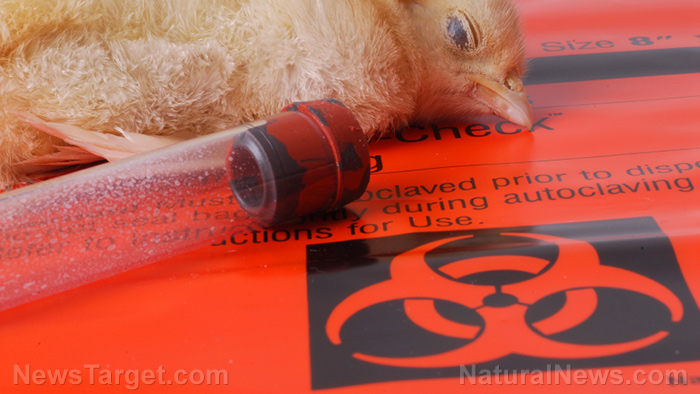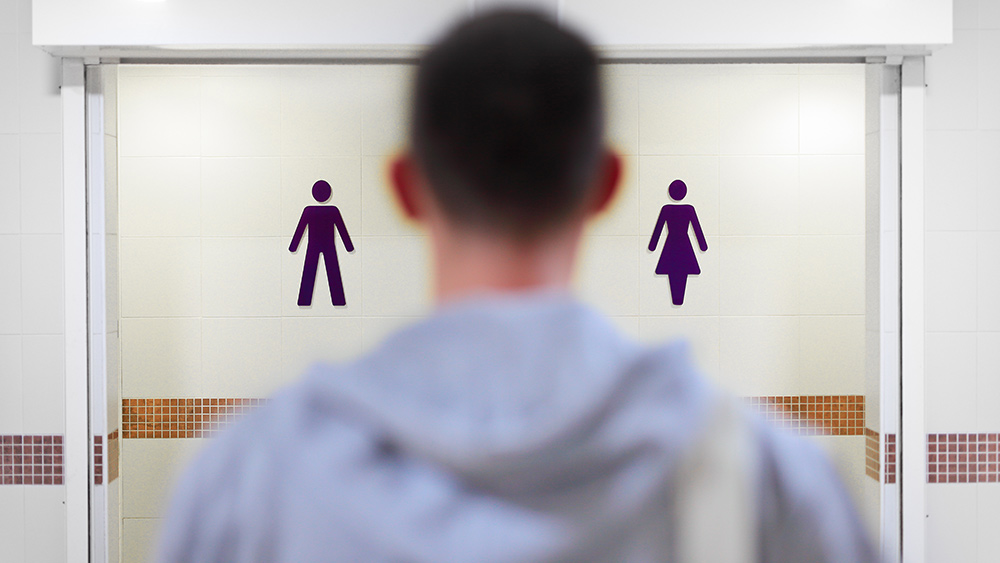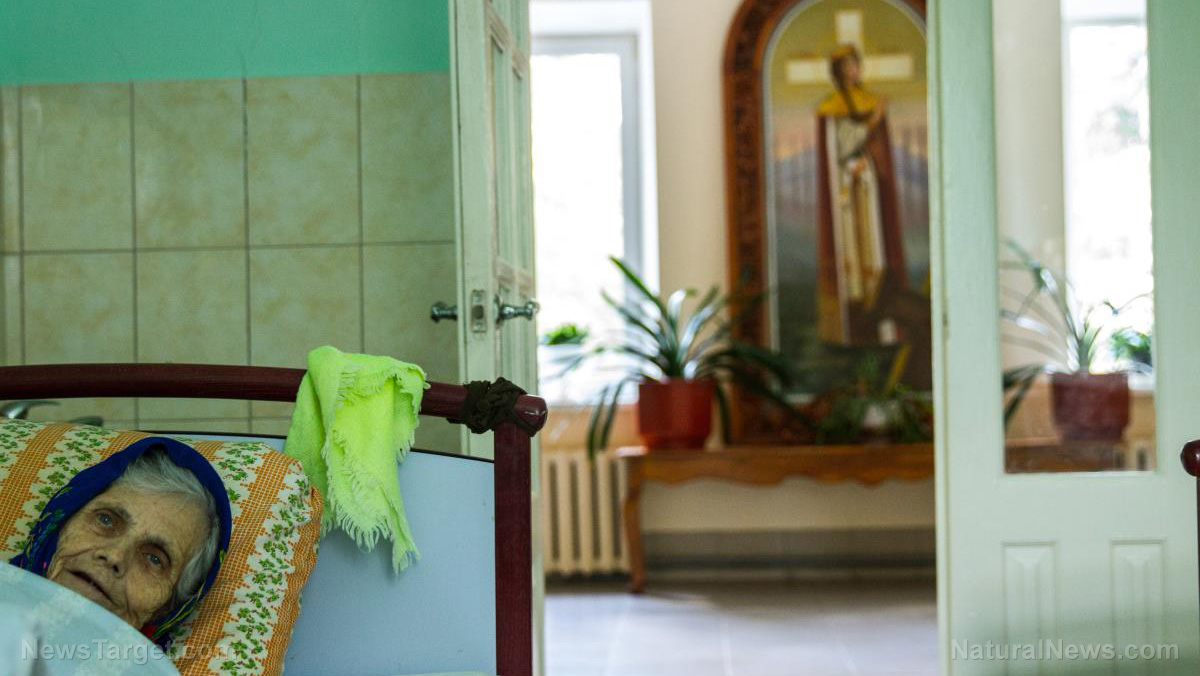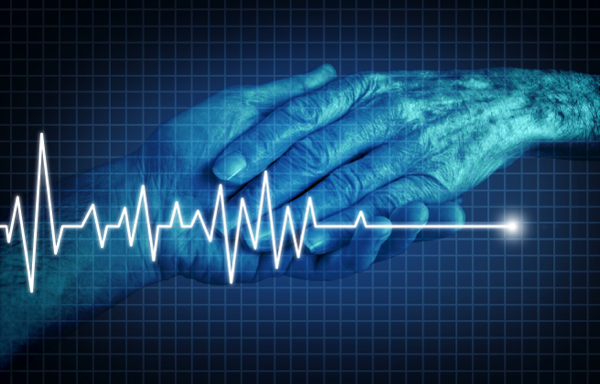Study: COVID-19 patients with Down syndrome 6 TIMES more likely to be given “do not resuscitate” orders
07/10/2024 / By Ava Grace
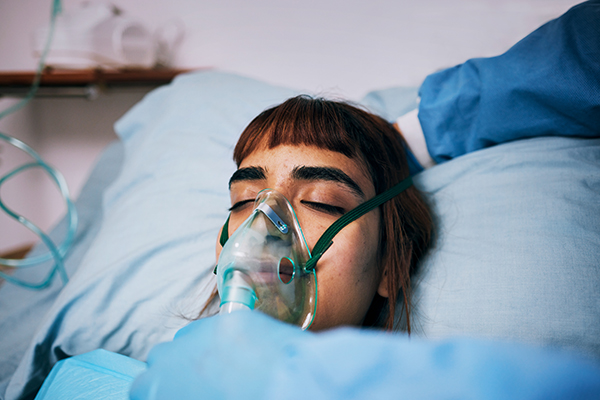
Patients with Down syndrome who get infected with the Wuhan coronavirus (COVID-19) are six times more likely to be given do not resuscitate (DNR) orders, according to a study.
The study was penned by a group of researchers, including Dr. Stephanie Santoro, an assistant professor of pediatrics at Harvard Medical School. Santoro, also director of quality improvement research for the Massachusetts General Hospital’s Down Syndrome Program, worked with fellow investigators to examine billing codes and claims data for 1.7 million patients at 825 U.S. hospitals between January 2019 and June 2022.
They then examined diagnoses and DNR status for people with and without Down syndrome. Their study found that Down syndrome patients diagnosed with either COVID-19 infection or COVID-19 pneumonia were six times more likely to have DNR orders compared to patients without the condition.
A DNR order directs medical personnel not to provide CPR – cardiopulmonary resuscitation – to a patient if their breathing stops or their heart stops beating. The order is determined by the patient, or if they’re unable to do so, by their family or guardian, typically in consultation with a healthcare provider.
The COVID-19 pandemic’s first year was marked by a sustained surge in hospital visits, forcing providers to stretch resources to meet needs. According to Santoro, discussions about triaging patients and rationing care were of great concern to Down syndrome advocates at the time.
She also remarked that amid the pandemic, there was ongoing fear that those in the disability community would be discriminated against and have worse outcomes than their able-bodied peers. Tragically, these fears would turn out to be true, as people with disabilities were at least twice as likely to die.
We are building the infrastructure of human freedom and empowering people to be informed, healthy and aware. Explore our decentralized, peer-to-peer, uncensorable Brighteon.io free speech platform here. Learn about our free, downloadable generative AI tools at Brighteon.AI. Every purchase at HealthRangerStore.com helps fund our efforts to build and share more tools for empowering humanity with knowledge and abundance.
Pandemic’s early months saw abuse of DNR orders
“It seems like a lifetime ago, but early in the pandemic, extreme steps like rationing ventilators were being discussed,” Santoro responded when asked about the reasoning behind the study. “In the Down syndrome community, there was a lot of worry, [especially about] wanting to protect the rights of people with Down syndrome.”
Noting that people with Down syndrome were known to get sicker and need more support when they contracted respiratory infections, she said the research team had to ensure the DNRs weren’t being given merely because the prognosis for someone with Down syndrome was so much poorer.
“We tried to compare some comorbidities like intubation rates if they had been in the ICU, or if they had come from acute care. But it didn’t pan out to have a similarly high odds ratio as the diagnosis of Down syndrome,” she said.
“Might people or their families be choosing DNR status when admitted with high acuity, life-threatening disease? We also wondered whether the folks with Down syndrome were older or if there was some other intervening co-variable that would explain the high odds ratio of DNR status. But we couldn’t find anything that explained it.”
Though there are health conditions known to be associated with Down syndrome, medical advancements have been able to address many of them. According to Santoro, the DNR status rate for those with Down syndrome “should likely be the same as for people without,” noting that those with the condition often lead healthy, happy and productive lives.
But the study by Santoro and her colleagues isn’t an anomaly. A survey done in the United Kingdom also found that people with disabilities were being pressured to sign DNRs during the pandemic. (Related: MEDICAL MURDER whistleblower: NHS ordered EUTHANASIA to inflate COVID-19 deaths in hospitals.)
Additionally, the U.K.’s National Institute for Health and Care Excellence (NICE) also told doctors that they should assess patients with disabilities for “frailty” before deciding whether or not they could be given life-saving treatments. NICE, which is under the British Department for Health and Social Care, publishes guidance on clinical practice for the U.K.’s National Health Service.
Visit HospitalHomicide.com for similar stories.
Watch this video about Grace Schara, who was given an DNR order that violated her rights as a person and later killed her while being hospitalized for COVID-19.
This video is from the Flyover Conservatives channel on Brighteon.com.
More related stories:
Scott Schara: Hospital homicide via COVID treatments part of a GENOCIDAL agenda.
Scott Schara: Medical system didn’t value people’s lives during COVID-19 pandemic – Brighteon.TV.
Sources include:
Submit a correction >>
Tagged Under:
conspiracy, covid-19, DNR orders, do not resuscitate, down syndrome, euthanasia, freedom, health freedom, hospital homicide, infections, Liberty, medical martial law, Medical Tyranny, medical violence, outbreak, outrage depot, pandemic, Plague, real investigations, truth, Wuhan coronavirus
This article may contain statements that reflect the opinion of the author





